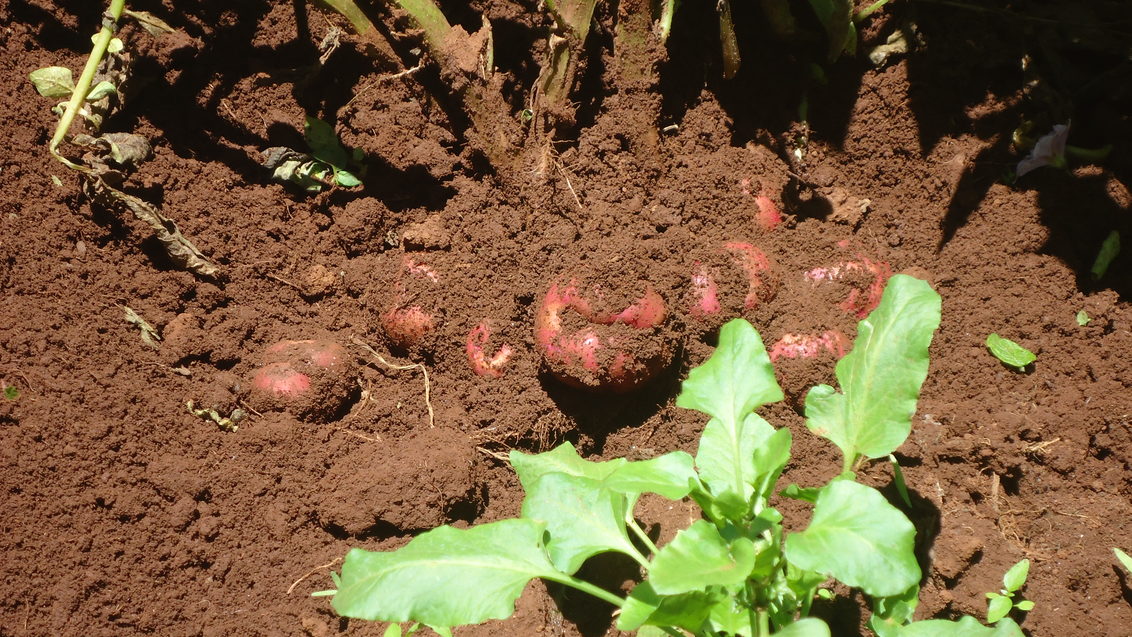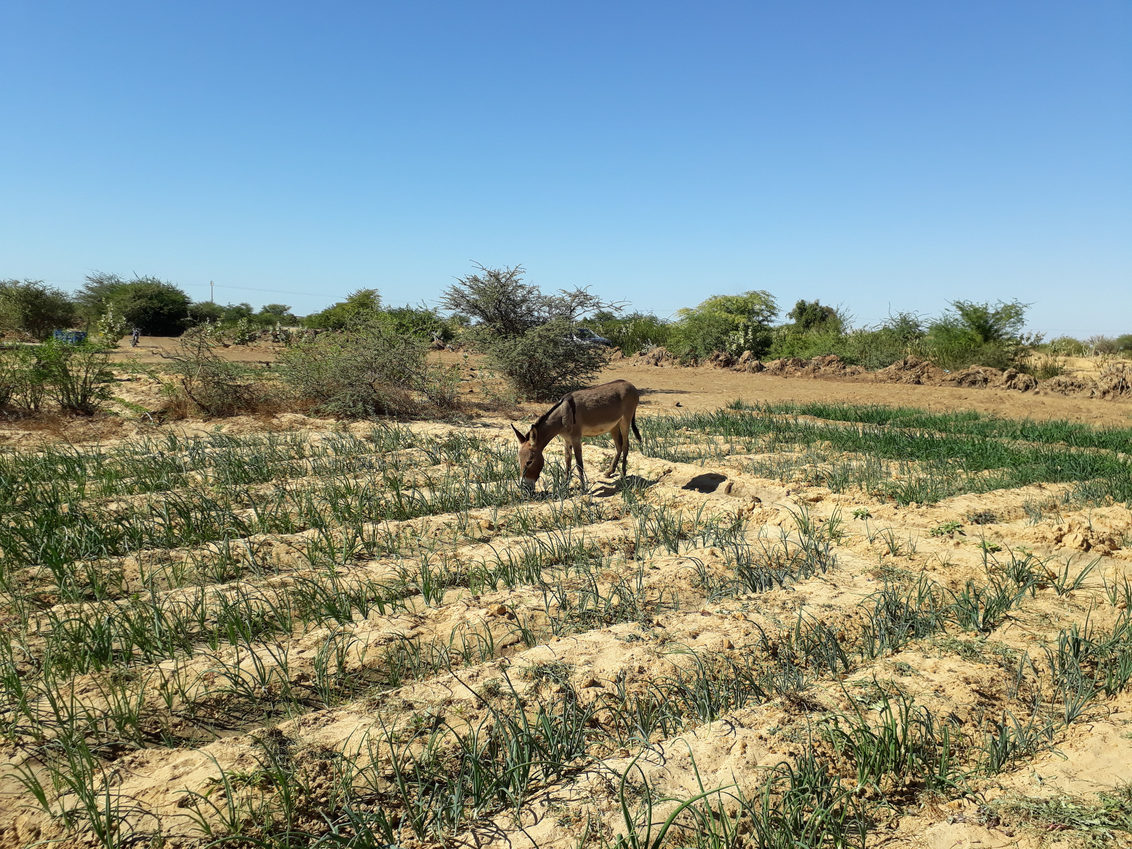Healthy soils for smallholders

December 5 was #WorldSoil Day. The Syngenta Foundation (SFSA) has identified Soil Health as a new strategic focus area. Dominik Klauser leads program development for sustainable soil management. He explains why we chose this topic, and what interventions we're planning.
Hier können Sie eine deutsche Version lesen.
Why is Soil Health becoming a focus area for SFSA?
Dominik Klauser: Healthy soils are a precondition for good agricultural productivity. They provide a variety of ‘environmental services’ such as water purification, regulating water and nutrient flow, and housing beneficial organisms. Increasing smallholders’ resilience is particularly important in the face of climate change. As weather conditions become increasingly variable, farmers will need to rely on soils that can withstand heavier rains as well as store more water during drier periods. Creating sustainable farming systems is one of our major ambitions and healthy soils are a key part of such systems.
With so many advantages, healthy soils must be high on everybody’s agenda. Why is there still a need for further work?
Yes, the benefits are obvious both for agriculture and ecosystems. In many places, however, current farming and other practices often severely degrade soils. This degradation limits the future availability of fertile agricultural land. That is especially true in developing countries.
Why there in particular?
There are several reasons. Firstly, smallholders in developing countries often lack opportunities and knowledge to use cropping practices that improve their soils and reduce farming’s environmental impact. They lack access to diagnostic tools such as soil testing equipment and extension services to guide them on how to use the resulting information. Often, appropriate inputs, such as seed for rotation crops or balanced, quality fertilizers, are not readily available. Another problem is market access; smallholders often don’t have buyers for beneficial rotation crops. A third issue is land tenure; farmers who do not have secure use of their fields have limited incentive to invest in improving them. Fourthly, smallholders often have very limited financial resources. They need a predictable and quick return on investment from using new practices and inputs that improve their soils. Benefits over time can include higher productivity and lower costs. Farm income can also stabilize and rise, for example through certification, better produce quality or payments for eco-services. These advantages, however, usually take a while to emerge.

Numerous organizations have tried to improve soil health. What does SFSA intend to do differently?
Many of the initiatives to help smallholders improve their soils have been non-commercial, and therefore unsustainable. Alternatively, they have been overly simple such as applying increased amounts of subsidized chemical fertilizers that are not sustainable economically or environmentally. New technologies and practices fade away when the organizers leave and subsidies are no longer provided. Building healthy soils needs a business case for the farmers and their business partners. We aim to help farmers find real monetary benefits from investing in better soil management.
Our first interventions will include farm diversification through market-led introduction of new rotation crops. Rotating crop types can increase soil nutrients and break pest and disease cycles, reducing agrichemical costs. We will build on our legume rotation work in Africa, part of the Seeds2B program. The second intervention will involve state-of-the-art tools for low-cost soil diagnostics, linked to advising and training on appropriate input use and improved links to supply chains. Today, unfortunately, balanced fertilizer blends or soil supplements, such as lime, are often not available to smallholders at all or not at the right time. Thirdly, we will build on our partnership with the World Bank’s BioCarbon Fund. We aim to develop smart and sustainable financial incentives for farmers to improve the health of their soils.
That sounds ambitious. Is SFSA planning to do everything on its own?
Initially, we will limit our focus to East Africa. We see an urgent need there, synergies with our existing activities and a critical mass of interested local and international partners. They include Kenyan farmer cooperatives, major NGOs such as One Acre Fund and donors, as well as The Nature Conservancy (TNC). Our partners in the soil diagnostics and input use initiative. We will also liaise closely with the Kenyan government which is interested in more holistic approaches to improving soil health. Once we’ve developed scalable models, we can look to work with a broader array of partners to scale adoption of the new approaches as well as test the interventions in other regions facing similar challenges.
What are your own practical experiences with soils?
I don’t actively farm, but I have a garden. The soil is very compacted and very likely depleted of nutrients – I haven’t added any fertilizers for years. Productivity is consequently very low. The only advantage is that in this very dry year I didn’t have to mow my lawn for months!

Dominik Klauser completed a Ph.D. in molecular plant-microbe interactions at the Zürich-Basel Plant Science Center. During his studies, he also worked on projects investigating the potential of renewable energy sources and in the technology transfer sector in the UK and Switzerland. In addition to his work at our Foundation, he lectures on plant physiology at Basel University.
